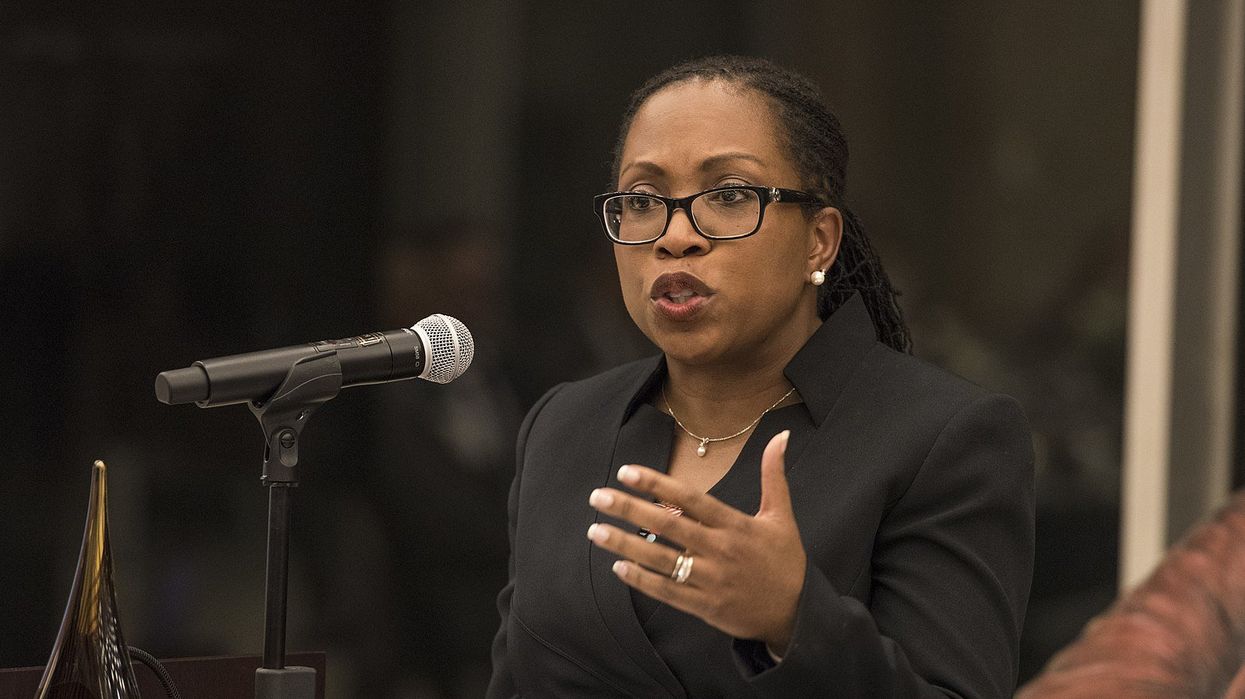Why SCOTUS’ 'inaccurate' affirmative action ruling may not be 'devastating in practice': columnist

U.S. Supreme Court Justice Ketanji Brown Jackson, Image via Creative Commons.
July 02, 2023 | 04:16PM ETBank
The United States Supreme Court's recent affirmative action ruling Thursday, June 29, was condemned by many liberals and progressives, while, in the eyes of many conservatives, "the justices struck down a form of racial discrimination."
The ruling, decided in a 6-3 vote led by Chief Justice John Roberts, banned Harvard University and the University of North Carolina (UNC) from using affirmative action, "ruling that race can no longer be a factor in college admissions."
In a Washington Post op-ed published Sunday, columnist and MSNBC contributor, Jennifer Rubin insists, "as long as you allow students to tell their personal story of racism" in their college applications, "race will get considered in the admissions process — to the chagrin of the right-wing justices and politicians who cheer this Pyrrhic victory."
Rubin writes:
That is precisely what disadvantaged minority students will write — and have been writing — in a society still plagued with racism, that virtually all such applicants have faced disadvantages, stereotyping and outright discrimination simply by virtue of the way they appear to the White majority. Only in Roberts's make-believe world is there a group of minority students who never experienced a smidgen of discrimination (e.g., had less accumulated family wealth because of the legacy of housing discrimination, had to have 'the talk' about police encounters, had teachers make assumptions about their abilities) and therefore would be unable to make the sort of case Roberts describes.
The columnist also notes:
Moreover, Roberts and his right-wing allies ironically chose to ignore the best originalist analysis of the 14th Amendment. 'I don't think that the historical record establishes that the founders believed that race neutrality or race blindness was required,' Justice Ketanji Brown Jackson said at oral argument in Merrill v. Mulligan. 'That's the point of that act, to make sure that the other citizens, the Black citizens, would have the same [rights] as the white citizens.'
With that, Rubin concludes, "Just because Roberts's decision is inaccurate and contradictory does not mean it will be devastating in practice."
The MSNBC contributor also notes Jackson wrote, "The admissions rubrics they have constructed now recognize that an individual's 'merit' — his ability to succeed in an institute of higher learning and ultimately contribute something to our society — cannot be fully determined without understanding that individual in full."
READ MORE: Why the Supreme Court affirmative action rulings make a case for abolishing the Electoral College
Furthermore, regarding Jackson's argument, Rubin asserts, "Because 'race still matters to the lived experiences of all Americans in innumerable ways,' as she put it, race will come back through the individual applications of students who have firsthand experience with that legacy."
READ MORE: Clarence Thomas in 1983: 'God only knows where' I would be if not for affirmative action
Rubin's full op-ed is available at this link (subscription required).